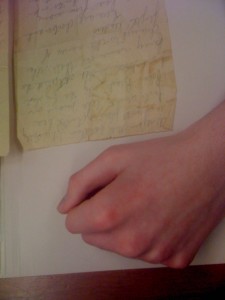ALBA: A Laboratory of Experiments in Moral Courage
The thousands of documents, images and artifacts that make up the Abraham Lincoln Brigade Archives can mean different things to different people.
To the veterans and their immediate friends and family, the Archives are, among other things, a repository of the personal papers and effects of loved ones, a kind of extended and collective family album/ scrap book, compiled and made public not so much to promote nostalgia, but rather to pay homage and forestall oblivion.
For scholars who study the years between the two world wars, or the history of radical politics in the US, the Archives constitute a vast trove of primary source documents that are, thanks to the curators at Tamiment, preserved from the ravages of time, and, more importantly, preserved, to a certain extent, from the corrosion of ex-post-facto paradigms or narratives that often disregard or pretend to “explain away” the testimony recorded in the archives. What did the Spanish Civil War look like to the interested parties before the Cold War? Before Auschwitz? Before the post-war gulags? Before Franco’s radical retooling of his regime, and his cozying up to the US of Truman and Eisenhower?
For me, as a professor of literature, as a citizen, as a father, and as a participant in ALBA’s outreach initiatives to high school students and teachers, the Archives are, first and foremost, a compendium of stories. Not just any stories, but true tales of real human beings struggling to make important decisions based on imperfect –ie, human– knowledge, at a time of profound crisis. Think of reality television, but where the participants are smart and articulate, the setting is real and incalculably complex, and the stakes are as high as they have ever been in the history of humanity.
“I knew I was an anti-fascist, but did I have it in me to stop making speeches from the soapbox, and to put my body where my mouth had been all those years? I wasn’t sure…” “I experienced a desire to go, but it was very hard for me to go, because I was twenty years old, had a very beautiful girlfriend, and was in love for the first time…” “My Dad told me that this was a European problem and it should be left to the Europeans to solve…” “I remember sitting in kindergarten and feeling different from all the other children, because I had a brother who was a Red, and who was fighting in this war that there were mixed feelings about…” “I had a job as a nurse (no small thing during the Depression), which obviously I would have to give up if I were to go to Spain…”
ALBA: vast family album, repository of historical documents that both invite and resist intepretation, laboratory of experiments in moral courage.















